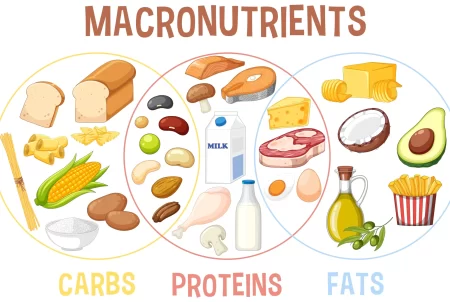 When it comes to weight loss, one of the most critical factors to consider is the balance of macronutrients in your diet.
When it comes to weight loss, one of the most critical factors to consider is the balance of macronutrients in your diet.
Carbohydrates, proteins, and fats all play unique roles in our bodies, and finding the right balance can help optimize weight loss efforts.
In this article, we will explore the importance of each macronutrient and provide guidelines for achieving a well-rounded and effective weight loss diet.
Understanding Carbohydrates
Carbohydrates are our body’s primary source of energy. However, not all carbs are created equal. Simple carbohydrates found in sugary foods and refined grains can lead to rapid blood sugar spikes, while complex carbohydrates found in whole grains, fruits, and vegetables provide sustained energy and essential nutrients.
When aiming for weight loss, it’s crucial to focus on consuming complex carbs in moderation to maintain stable blood sugar levels and control cravings.
The Power of Protein
Protein is essential for weight loss as it helps build and repair tissues, boosts metabolism, and keeps you feeling fuller for longer. Including lean protein sources such as chicken, fish, tofu, beans, and legumes in your meals can promote muscle growth and aid in weight loss.
Aim to consume protein throughout the day, as it has a higher thermic effect, meaning your body burns more calories digesting protein compared to carbs or fat.
The Role of Healthy Fats
Despite their reputation, not all fats are detrimental to weight loss. In fact, incorporating healthy fats into your diet can be beneficial.
Unsaturated fats, such as those found in avocados, nuts, seeds, and olive oil, provide essential fatty acids and promote satiety. Including these fats in your meals can help you feel satisfied, curb cravings, and support overall weight loss efforts.
However, remember that fats are calorie-dense, so portion control is key.
Striking the Right Balance
To achieve optimal weight loss, it’s important to strike the right balance between carbohydrates, protein, and fat. While individual requirements may vary, a general guideline is to aim for a well-rounded diet consisting of approximately 40% carbohydrates, 30% protein, and 30% fat.
This balance ensures that you provide your body with the necessary nutrients for energy, muscle repair, and satiety while creating a calorie deficit for weight loss.
Achieving a balance of carbohydrates, protein, and fat is crucial for effective weight loss. By understanding the roles of each macronutrient and tailoring your diet accordingly, you can optimize your weight loss journey.
Picture Credit: Freepik






